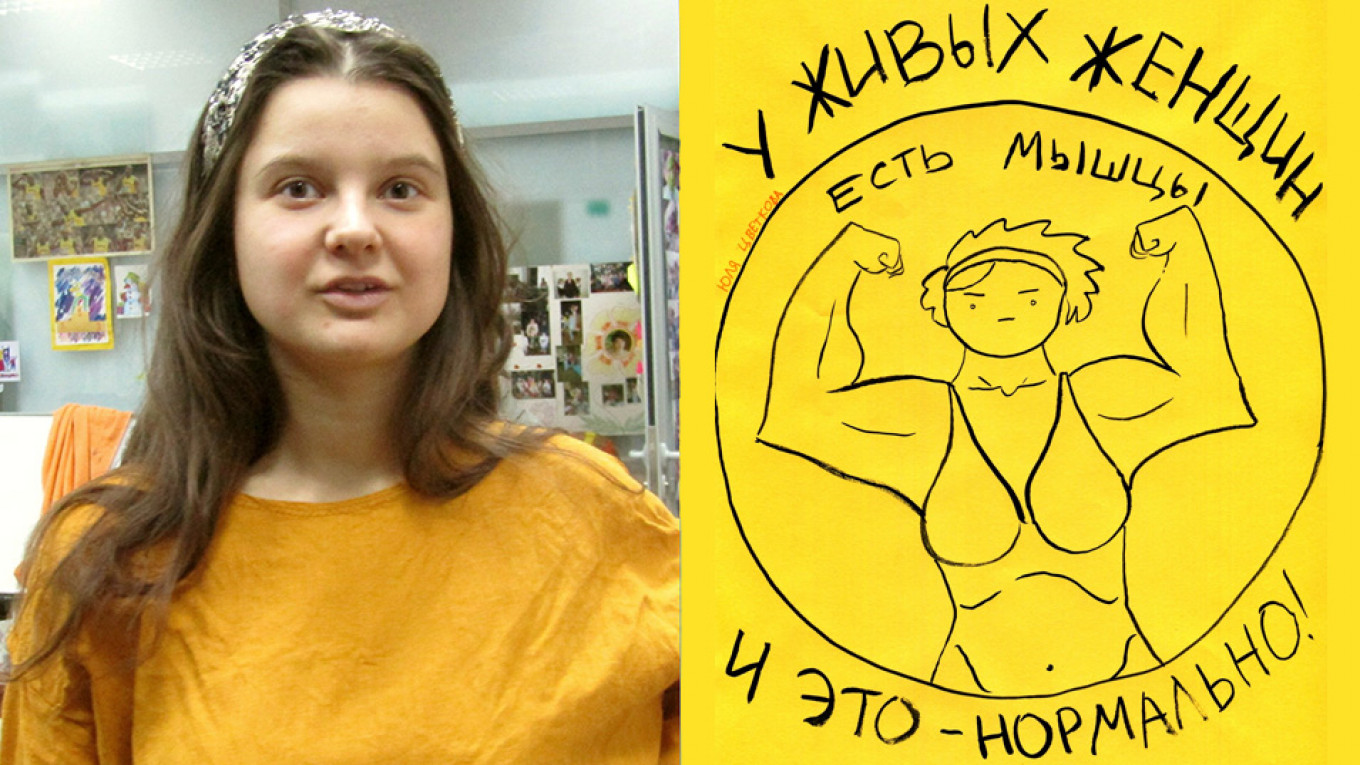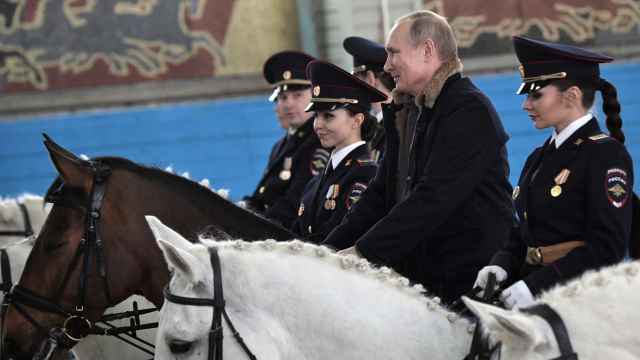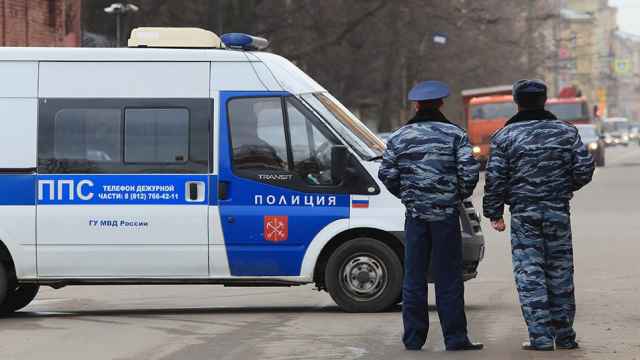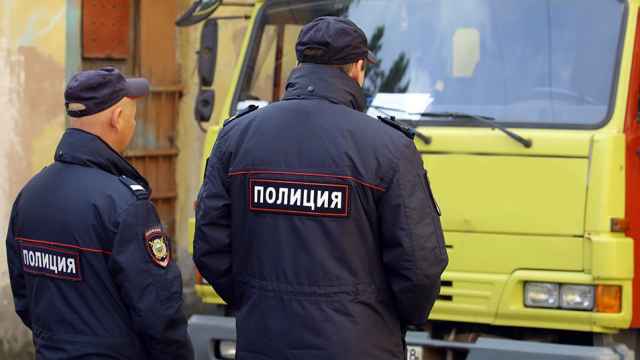A feminist activist in Russia’s Far East was questioned by police over her art project on body positivity which they deemed “pornographic,” the sibreal.org news website reported Friday.
Activist Yulia Tsvetkova’s illustrations were part of a project called “Women are Not Dolls,” which aims to promote body positivity among young women. The images show women dealing with body hair, wrinkles, menstruation and fat, accompanied by text beginning with “Real women have…” and ending with “... and this is all normal!”
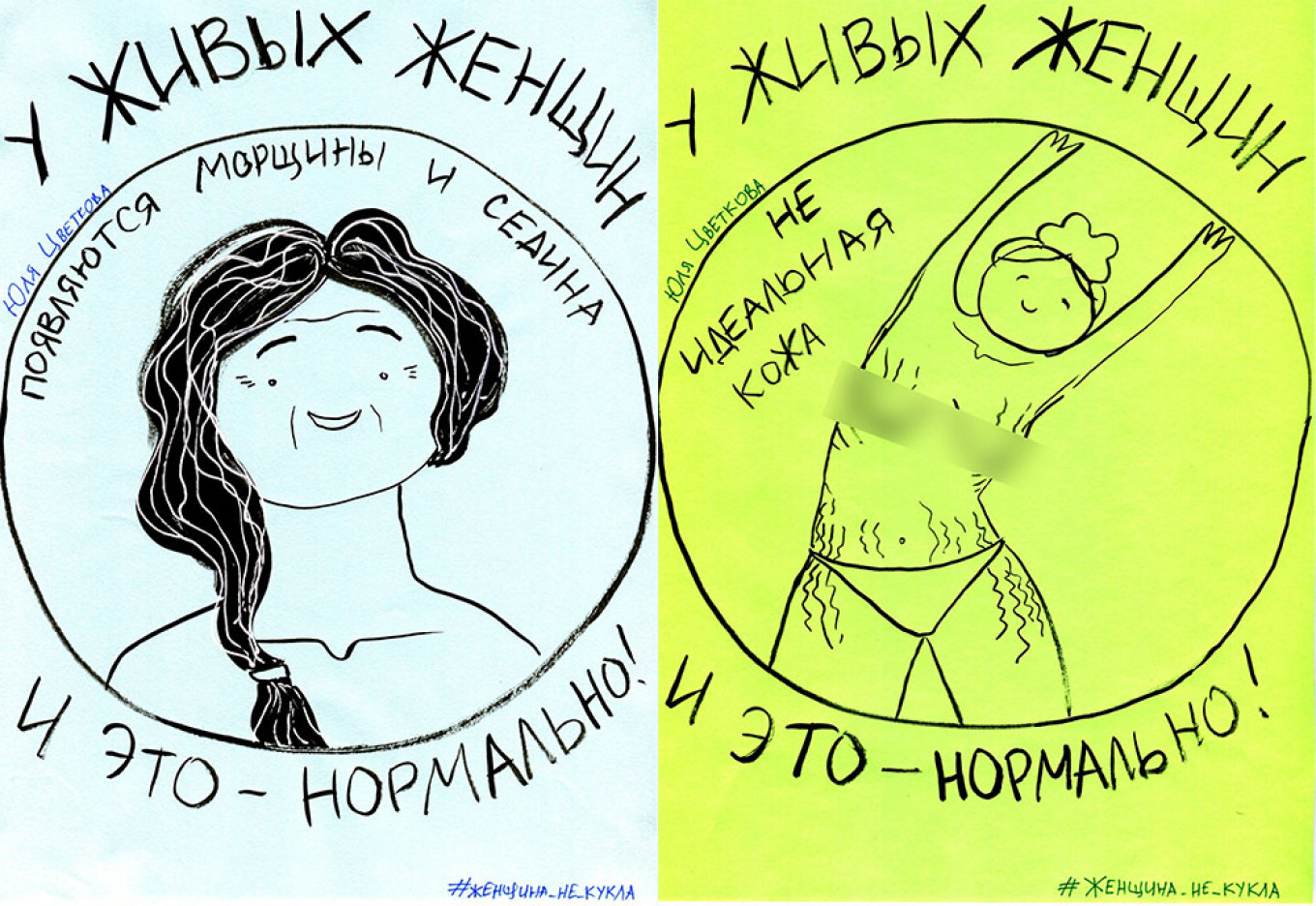
Police in the Khabarovsk region town of Komsomolsk-on-Amur said the drawings had the potential to “defile children,” as the project is part of Tsvetkova’s work in a youth theater.
Tsvetkova told sibreal.org that she was summoned for questioning after police received an anonymous complaint.
Earlier this month, the Komsomolsk-on-Amur mayor’s office banned a theater festival directed by Tsvetkova on the grounds that the performances were LGBT propaganda, the report adds.
A Message from The Moscow Times:
Dear readers,
We are facing unprecedented challenges. Russia's Prosecutor General's Office has designated The Moscow Times as an "undesirable" organization, criminalizing our work and putting our staff at risk of prosecution. This follows our earlier unjust labeling as a "foreign agent."
These actions are direct attempts to silence independent journalism in Russia. The authorities claim our work "discredits the decisions of the Russian leadership." We see things differently: we strive to provide accurate, unbiased reporting on Russia.
We, the journalists of The Moscow Times, refuse to be silenced. But to continue our work, we need your help.
Your support, no matter how small, makes a world of difference. If you can, please support us monthly starting from just $2. It's quick to set up, and every contribution makes a significant impact.
By supporting The Moscow Times, you're defending open, independent journalism in the face of repression. Thank you for standing with us.
Remind me later.


